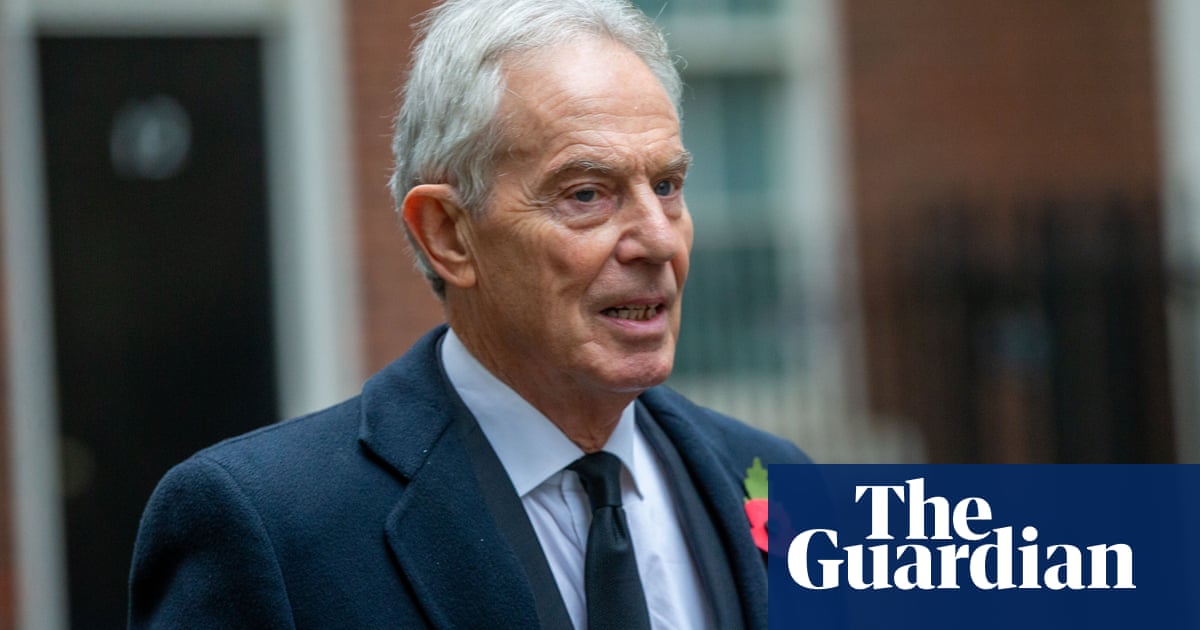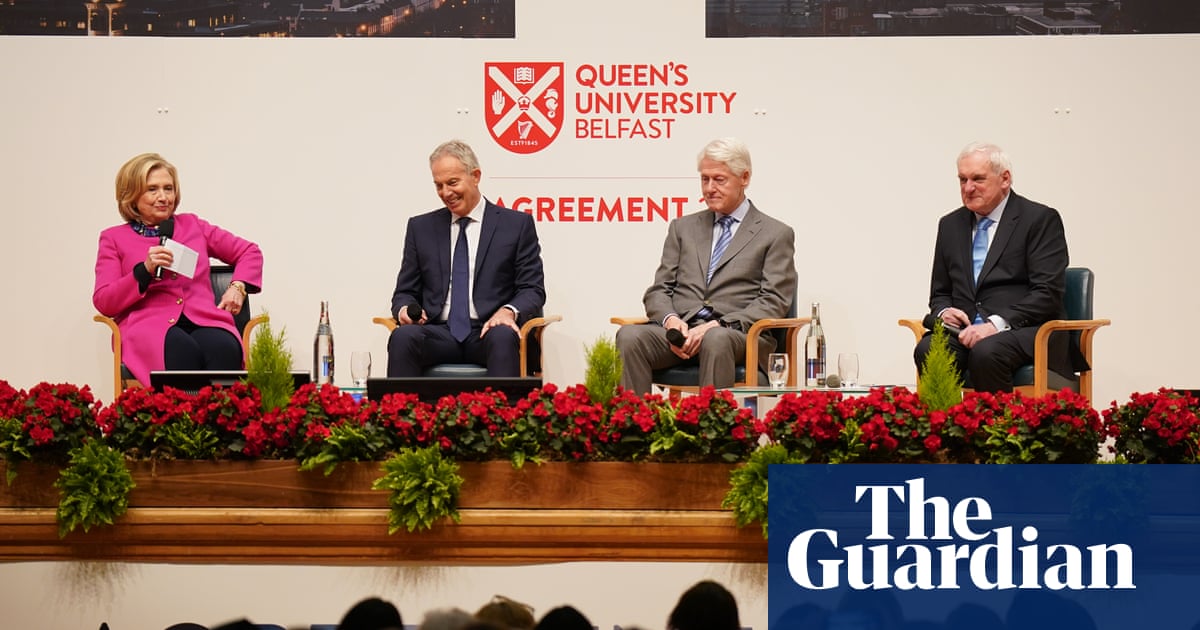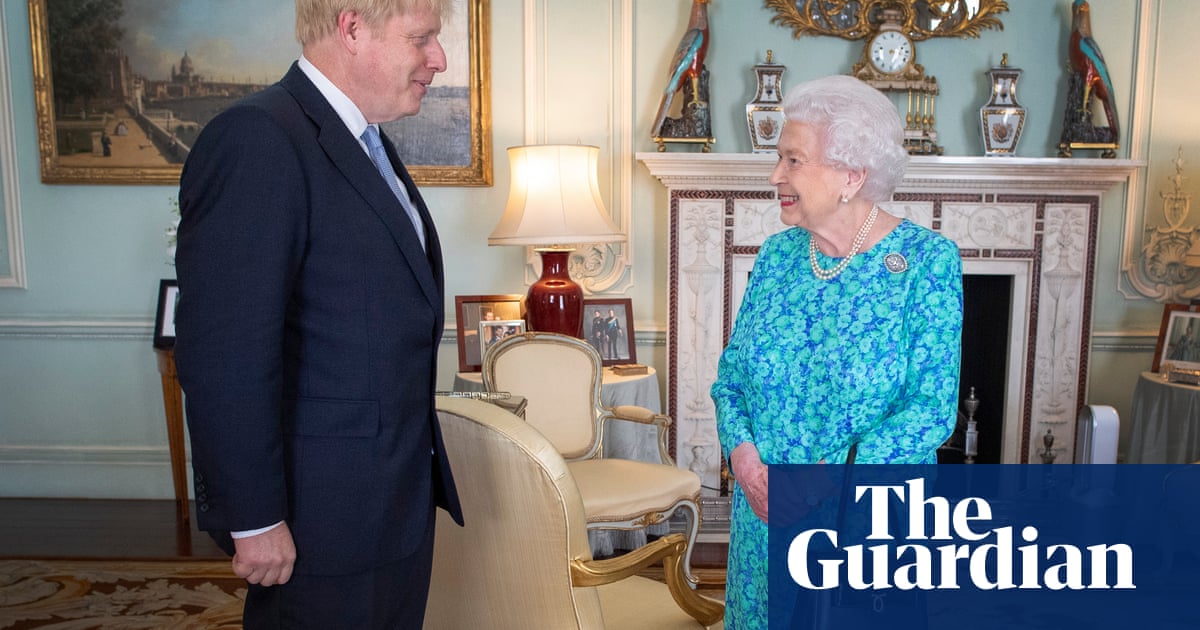
Tony Blair considered asking the Queen to open the newly formed Northern Ireland assembly in 1998, newly released state papers show.
A letter from the then prime minister’s principal private secretary, John Holmes, reveals that Blair accepted it was a “delicate issue” but “[did] not believe it would be inappropriate” for the monarch to be involved.
Details of exchanges relating to the opening are contained in documents held at the Public Record Office in Belfast, with hundreds of the files now being made public under the 30/20-year rule.
Blair was keen for the Queen to open Stormont and asked one of his ministers to raise it in secret with the then Social Democratic and Labour party (SDLP) deputy leader, Seamus Mallon.
The letter to Nick Perry at the Northern Ireland Office (NIO) on 21 September 1998 reads: “The prime minister agrees that we cannot assume that this will remain a sleeping dog. However, he does not believe that it would be inappropriate for the Queen to open the assembly and does not agree we should ourselves try to avert this possibility. Nevertheless, he recognises that this is a delicate issue for nationalist opinion.”
“He therefore believes that as a first step Paul Murphy [an NIO minister] should talk to Seamus Mallon privately about arrangements for the opening, mentioning the possibility of the Queen, but in neutral terms, before raising it with [David] Trimble or making any other moves. We can take it from there, depending on Seamus’s reaction.”
The then Northern Ireland secretary, Mo Mowlam, suggested it might help “see off controversy” if ideas that did not include the Queen were considered. A letter from Jonathan Stephens, a Labour official, said he had discussed the issue with Mowlam.
He stated: “She was entirely content with the line being taken by No 10. But she also suggested that it might help see off controversy if we were ready to come forward ourselves with vibrant and exciting proposals for marking the devolution of full powers to the assembly in a way which did not necessitate the Queen’s involvement – eg children’s choirs, etc.”
The Stormont assembly was established in 1998 but did not gain fully devolved powers until December 1999, mainly due to political disputes over IRA decommissioning of weapons.
The newly released files also reveal that the historic moment when unionist politicians shared a conference room with Sinn Féin for the first time was described by officials as “something of a damp squib”.
The peace talks, involving Northern Ireland political parties and the British and Irish governments, took place in 1997 after Labour’s victory in the general election that year and a new ceasefire by the IRA.
The declassified papers reveal that on 15 September 1997, Mowlam challenged Sinn Féin’s leadership about an IRA interview in An Phoblacht, a republican newspaper, in which the group said it had problems with sections of the Mitchell principles, which committed all parties to exclusively peaceful means.
The minutes record the Sinn Féin negotiator Martin McGuinness telling the plenary meeting that “Sinn Féin could not guarantee that the IRA would support whatever was agreed in the talks”.
A talks summary from two days later reveals that the key event was the “unexpected arrival of the UUP (Ulster Unionist party) delegation, led by David Trimble”. The two parties were in the same room by the following week.
It reads: “The purpose of the plenary – the hearing of the UUP’s indictment of Sinn Féin over the Mitchell principles – was something of a damp squib, particularly as the UUP’s address on their indictment contained no evidence to support their allegations. Nevertheless, a historic change had occurred.”
The files also revealed that former British prime minister John Major admitted privately that he did not believe the IRA could be beaten militarily. According to a memo, he made the comments at meeting in Downing Street in February 1992.












